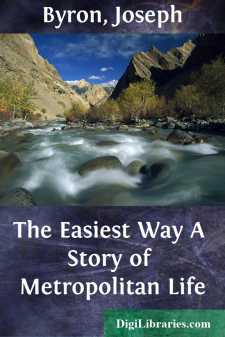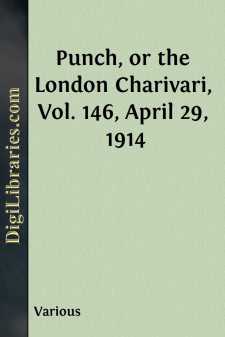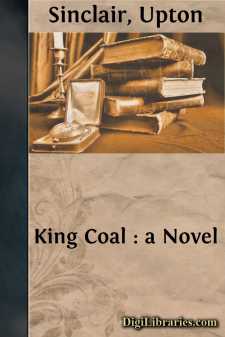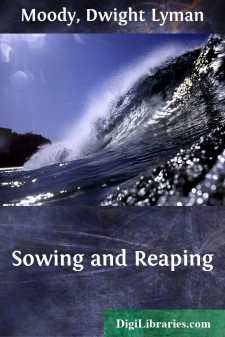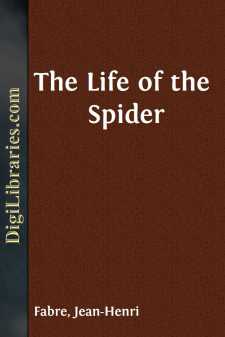Categories
- Antiques & Collectibles 13
- Architecture 36
- Art 48
- Bibles 22
- Biography & Autobiography 813
- Body, Mind & Spirit 142
- Business & Economics 28
- Children's Books 13
- Children's Fiction 10
- Computers 4
- Cooking 94
- Crafts & Hobbies 4
- Drama 346
- Education 46
- Family & Relationships 57
- Fiction 11828
- Games 19
- Gardening 17
- Health & Fitness 34
- History 1377
- House & Home 1
- Humor 147
- Juvenile Fiction 1873
- Juvenile Nonfiction 202
- Language Arts & Disciplines 88
- Law 16
- Literary Collections 686
- Literary Criticism 179
- Mathematics 13
- Medical 41
- Music 40
- Nature 179
- Non-Classifiable 1768
- Performing Arts 7
- Periodicals 1453
- Philosophy 64
- Photography 2
- Poetry 896
- Political Science 203
- Psychology 42
- Reference 154
- Religion 513
- Science 126
- Self-Help 84
- Social Science 81
- Sports & Recreation 34
- Study Aids 3
- Technology & Engineering 59
- Transportation 23
- Travel 463
- True Crime 29
Sort by:
by:
Warwick Goble
The Visitor from the Cellar. The whole house in London was dull and gloomy, its lofty rooms and staircases were filled with a sort of misty twilight all day, and the sun very seldom looked in at its windows. Ruth Lorimer thought, however, that the very dullest room of all was the nursery, in which she had to pass so much of her time. It was so high up that the people and carts and horses in the street...
more...
I. Nothing dies so hard as prejudice, unless it be sentiment. Indeed, prejudice and sentiment are but different manifestations of the same principle by which men pronounce on things according to individual feeling, independent of facts and free from the restraint of positive knowledge. And on nothing in modern times has so much sentiment been lavished as on the Irish question; nowhere has so much...
more...
by:
Joseph Byron
CHAPTER I. The hour was late and the theatres were emptying. The crowds, coming from every direction at once, were soon a confused, bewildered mass of elbowing humanity. In the proximity of Broadway and Forty-second Street, a mob of smartly-dressed people pushed unceremoniously this way and that. They swept the sidewalks like a resistless torrent, recklessly attempting to force a path across the...
more...
by:
Edith A. How
1. The Country and its River Egypt is a country in the north of Africa. It has sea to the north and sea to the east. On the north it is called the Mediterranean Sea, and on the east the Red Sea. On the west is the great sandy desert called the Sahara, and to the south are great forests and mountains. Egypt itself is the land of the great River Nile. There is very seldom any rain there, and everyone has...
more...
by:
Various
APRIL 29, 1914. Captain Fort, a French army airman from Chalons, flew over the German frontier, last week, by mistake, and alighted in Lorraine, but flew back again before the German police arrived. We think he should have waited. It is just little discourtesies such as this that accentuate ill-feeling between nations. Mr. H. W. Thornton, the new American manager of the Great Eastern Railway, says that...
more...
by:
Upton Sinclair
INTRODUCTION Upton Sinclair is one of the not too many writers who have consecrated their lives to the agitation for social justice, and who have also enrolled their art in the service of a set purpose. A great and non-temporizing enthusiast, he never flinched from making sacrifices. Now and then he attained great material successes as a writer, but invariably he invested and lost his earnings in...
more...
CHAPTER I. “Be not deceived; God is not mocked: for whatsoever a man soweth, that shall he also reap. For he that soweth to his flesh shall of the flesh reap corruption; but he that soweth to the Spirit shall of the Spirit reap life everlasting.” Galatians vi: 7, 8. I think this passage contains truths that no infidel or sceptic will dare to deny. There are some passages in the Word of God that...
more...
by:
Jean-Henri Fabre
CHAPTER I: THE BLACK-BELLIED TARANTULA The Spider has a bad name: to most of us, she represents an odious, noxious animal, which every one hastens to crush under foot. Against this summary verdict the observer sets the beast’s industry, its talent as a weaver, its wiliness in the chase, its tragic nuptials and other characteristics of great interest. Yes, the Spider is well worth studying, apart...
more...
by:
George Paston
It is an unromantic fact, but one which cannot fail to be of interest at the present time, that the remarkable development of the graver's art in England during the latter part of the eighteenth century was due, in a measure at least, to—Protection. In the middle of the century our trade in engravings was still an import one, English print-sellers being obliged to pay hard cash for the prints...
more...
It was a dull evening in the month of September, 1728. The apprentices had closed and barred the shutters and the day's work was over. Supper was laid in the long room over the shop, the viands were on the table, and round it were standing Bailie Anderson and his wife, his foreman John Gillespie, and his two apprentices. The latter were furtively eying the eatables, and wondering how much longer...
more...




